You have probably heard the nursery rhyme, “How much wood could a woodchuck chuck if a woodchuck could chuck wood? As much wood as a woodchuck could chuck, if a woodchuck could chuck wood.” As cute as this poem is, it is actually not true: woodchucks don’t chuck wood. However, they do chuck a lot of dirt when they dig out a burrow.
Woodpeckers (Picidae), on the other hand, do peck wood! There might not be a fun nursery rhyme about them, but there is an answer to the question, why do woodpeckers love pecking wood? In fact, there are six reasons why a woodpecker loves pecking wood!
1: They’re Looking for Food
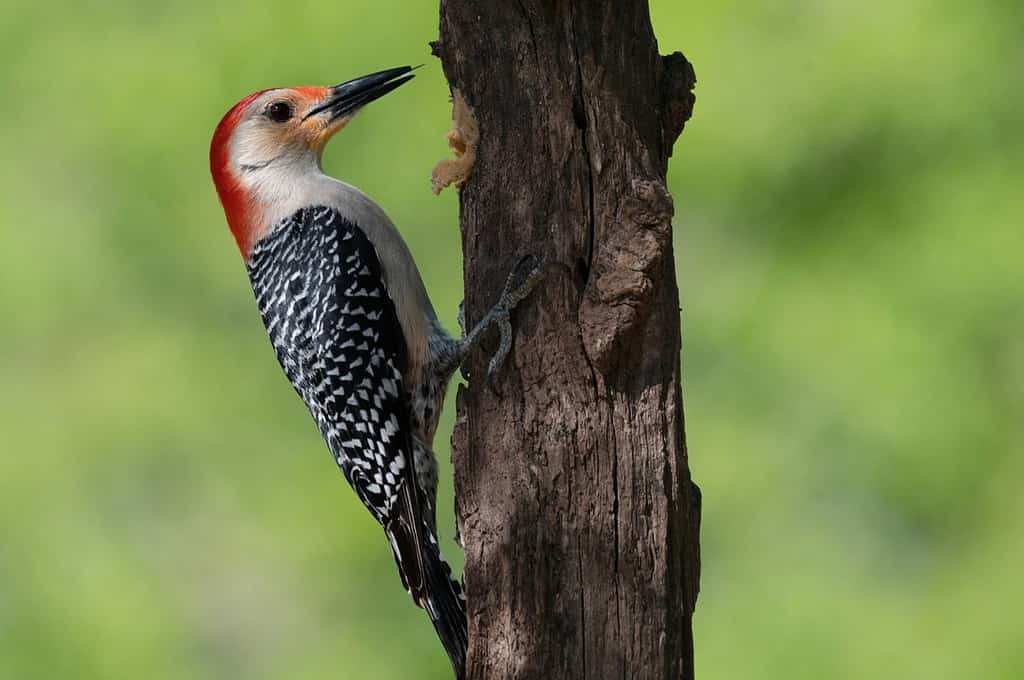
©Connie Moore/Shutterstock.com
Woodpeckers love to peck wood in their search for food. They feast on insects and larvae that tend to live in or hide out in damaged or diseased trees. Woodpeckers enjoy a meal that consists of carpenter ants, leafcutter bees, termites, and carpenter bees. These insects live inside dead or dying trees.
There are 23 woodpecker species native to the United States and there are 180 unique species. All woodpeckers belong to the Picidae family of birds, and they all share a few stunning characteristics. They vary somewhat in form and habit, but they are pretty easy to spot and have a lot in common, especially in terms of the reasons why they love to peck. A yellow-bellied sapsucker (Sphyrapicus varius), which is a medium-sized woodpecker that breeds in Canada and the northeastern United States, drills holes in trees to create a meal of sap. This bird uses its brush-tipped tongue to lick the sap as it leaks from the hole. Over time, a tree may weaken due to excessive pecking. The holes in the tree can provide access to harmful insects or plant diseases.
Woodpeckers may look for wood outside of trees as they search for food, especially if they lose their forest habitat. In these instances, they have nowhere left to turn to raise their young except for houses and other buildings. That’s why they can turn into pests. If you start to notice small, irregular holes in the siding of your house, you might have an insect infestation, and those holes could have been created by woodpeckers. Your house could be loaded with carpenter bees, carpenter ants, or termites. It might feel annoying to have a woodpecker drilling holes into your house, but you can think of it as a warning sign the bird was trying to give you! Once you have an exterminator come to deal with the underlying insect problem your woodpeckers will fly away and look for meals elsewhere. And you can thank the woodpeckers for alerting you to the issue! That is one of the reasons why a woodpecker pecks wood.
2: They’re Stashing Food
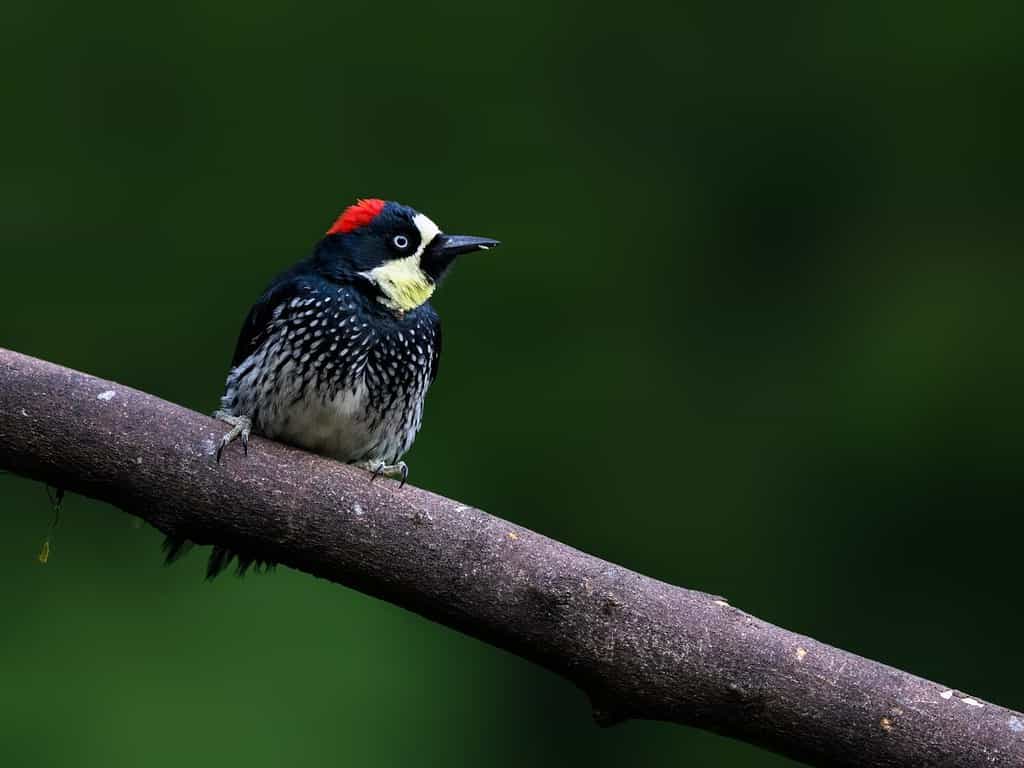
©FotoRequest/Shutterstock.com
Acorn woodpeckers (Melanerpes formicivorus) peck hundreds of small holes at a time and tuck a single acorn into each hole. They do this in trees and houses, sometimes wedging acorns underneath wooden shingles.
The woodpecker uses its bill to peck or drum hard on wooden surfaces. Woodpeckers will hold onto the tree vertically as they peck. They can do this because they have two toes in front and two toes in back, unlike most birds, which have three forward toes and one hind toe. This unique quality allows the birds to lean back and peck continuously. The bird has a special muscle and tendon structure at the back of its jaw that acts as a shock absorber. That’s how they can peck wood over and over again without knocking themselves out!
In addition to carpenter bees, carpenter ants, termites, sap, and acorns, woodpeckers also love to eat emerald ash borers, corn, dog food, mice, small lizards, birds, bird eggs, crickets, beetles, oranges, grapes, apples, suet, peanuts, and sunflower seeds.
3: They’re Nesting
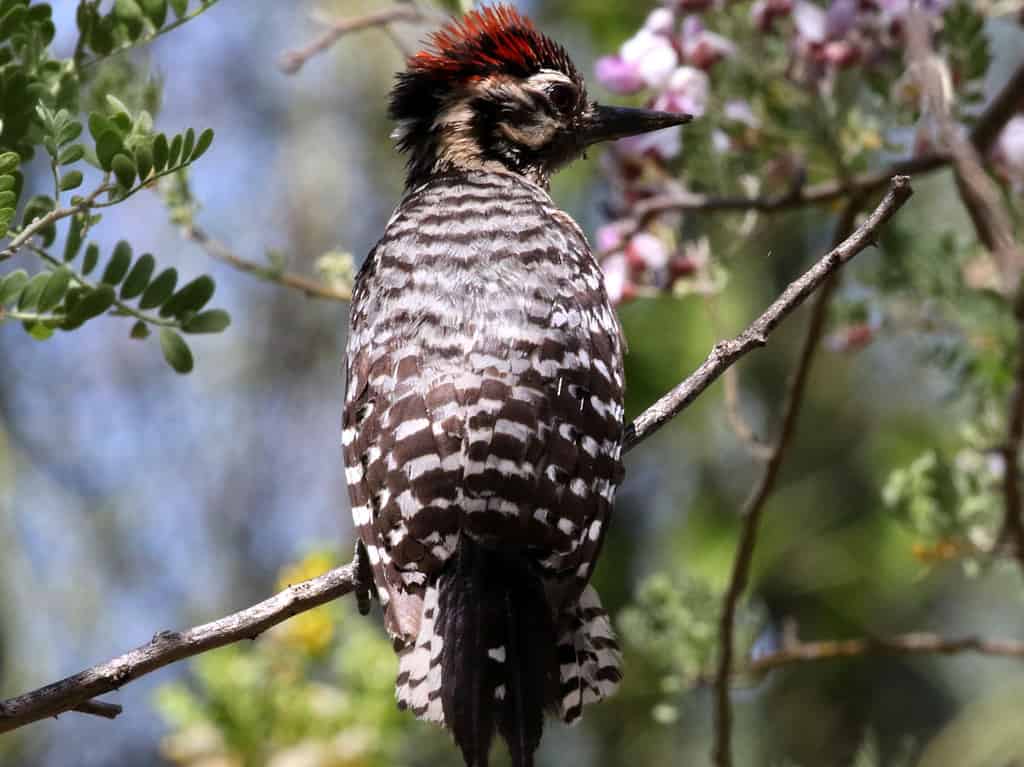
©Peterwchen, CC BY-SA 4.0 – License
All species of woodpeckers like to create cozy cavities to nest in. In their search for a home base, they seek out decaying trees. The third reason why woodpeckers love pecking wood is because they are looking for somewhere to nest. They burrow a large, round hole to nest in. In this safe spot, they can lay their eggs, protecting them from predators and any natural elements. To you, it might look like a sad, dead tree. But to a woodpecker, it is the perfect place to create a safe and comfortable home.
Baby woodpeckers spend the first few weeks of life safely tucked away in holes inside tree or cacti trunks. Baby woodpeckers are altricial, which means they can’t do anything for themselves for the first 20 to 30 days of life. Like songbird chicks, woodpecker chicks are completely dependent on their mothers for at least three weeks.
4: They’re Communicating
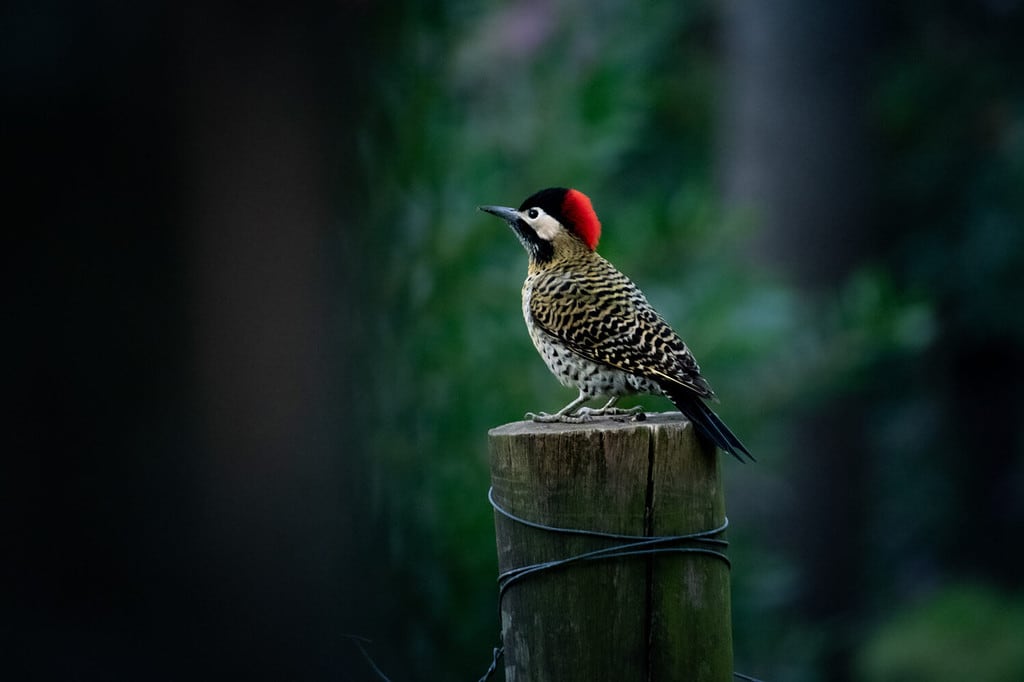
©Gianni Schiaffarino/Shutterstock.com
A woodpecker pecks wood to communicate with other woodpeckers and birds. This communication is known as drumming, and it’s how woodpeckers talk to each other non-vocally. You might hear a woodpecker drumming on wood and wondering what it’s saying. We can’t know exactly what the birds are saying, but we do know that a woodpecker that performs a strong drumming pattern is trying to claim its territory or, perhaps, attract a mate. Both male and female woodpeckers partake in this drumming, which usually happens during the late winter and early spring. This is when woodpeckers are in the process of establishing their territories. It is also the time when woodpeckers are looking for mates.
5: They’re Claiming Their Territory
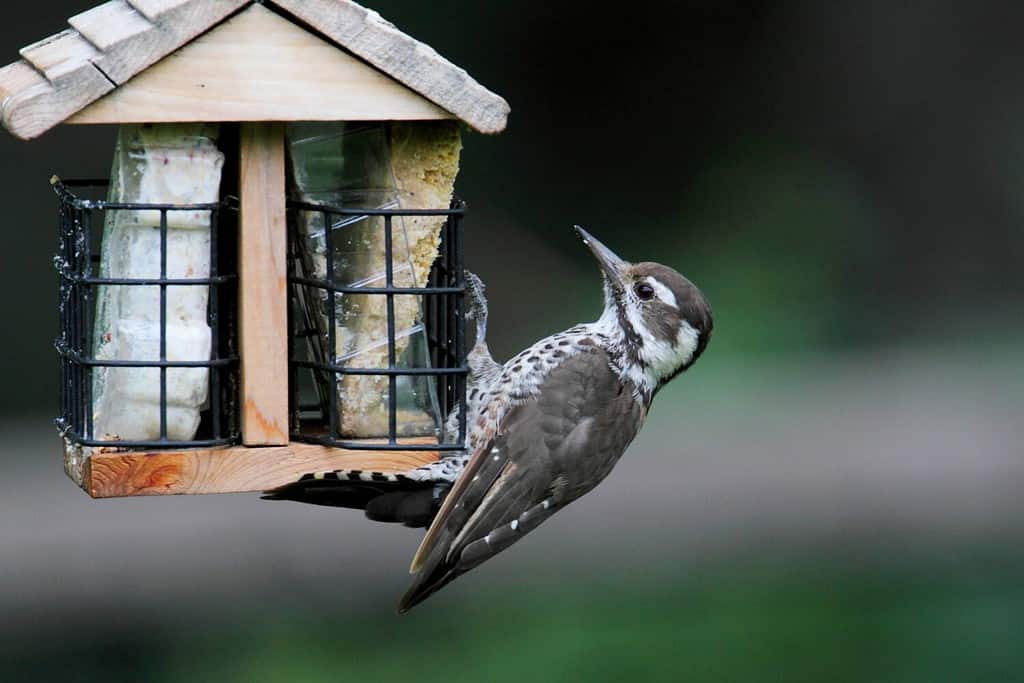
©Steve Byland/Shutterstock.com
The communication the woodpeckers are trying to extend could be their dominance. They might simply be trying to claim their territory.
And sometimes, to make sure they can do that, woodpeckers drum on metal rather than wood. As you can probably imagine, the sound resonates much more loudly on metal than on wood. These loud echoes can make the woodpeckers seem dominant and can be successful in scaring away any competition or even predators. Woodpeckers love to make a lot of noise when they peck. They want their sounds to reverberate loudly, so they might search for places like metal chimneys or rooftop ventilators.
6: They’re Trying to Mate
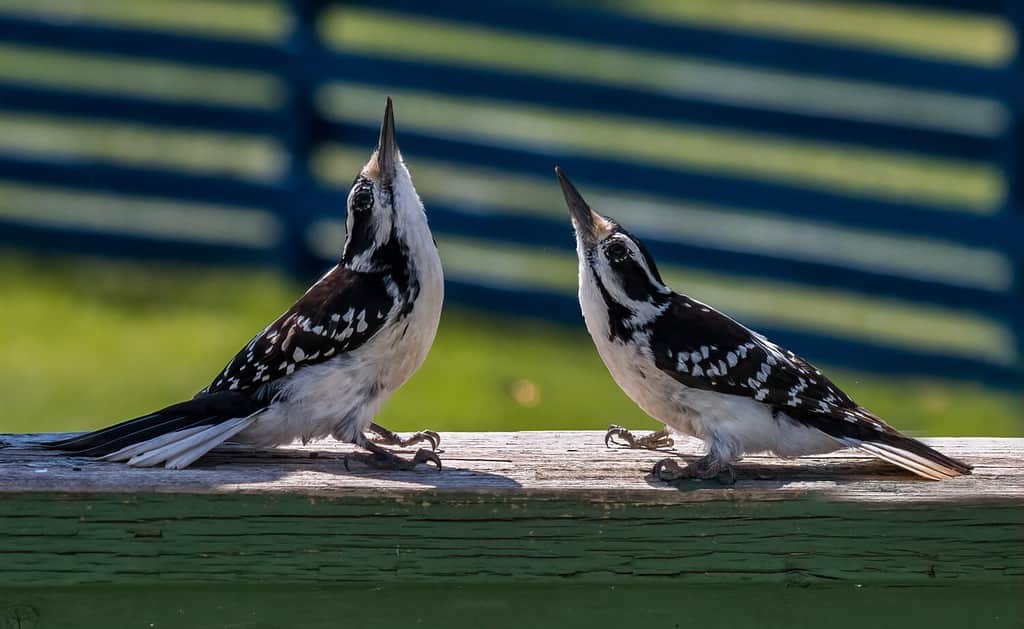
©Fiona M. Donnelly/Shutterstock.com
Woodpeckers are not songbirds, so they do not have a beautiful melody to sing to attract mates. Rather, woodpeckers will attract partners by making as much noise as they possibly can. So, if you hear a woodpecker pecking or drumming on metal, you can bet that a woodpecker is probably going to find a compatible mate.
Summary of 6 Reasons Why Woodpeckers
| Rank | Reason |
|---|---|
| #1 | They’re Looking For Food |
| #2 | They’re Stashing Food |
| #3 | They’re Nesting |
| #4 | They’re Communicating |
| #5 | They’re Claiming Their Territory |
| #6 | They’re Trying to Mate |
The photo featured at the top of this post is © vagabond54/Shutterstock.com
Thank you for reading! Have some feedback for us? Contact the AZ Animals editorial team.






